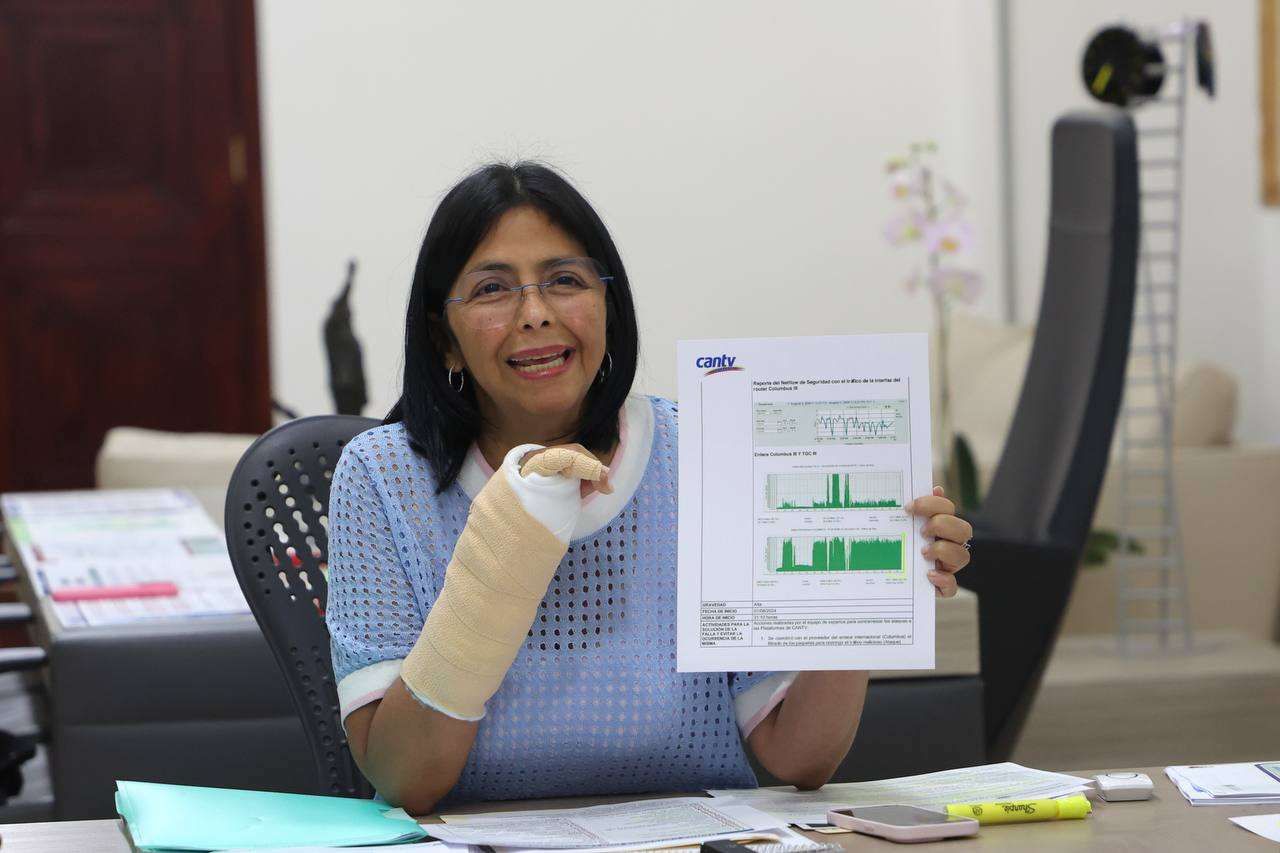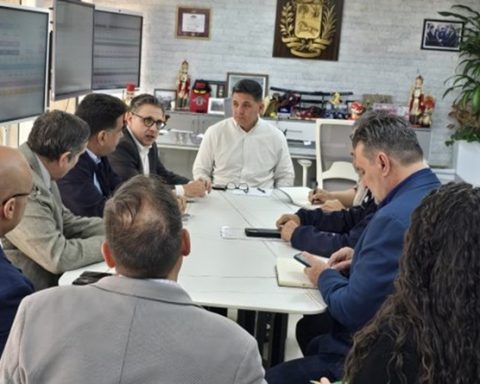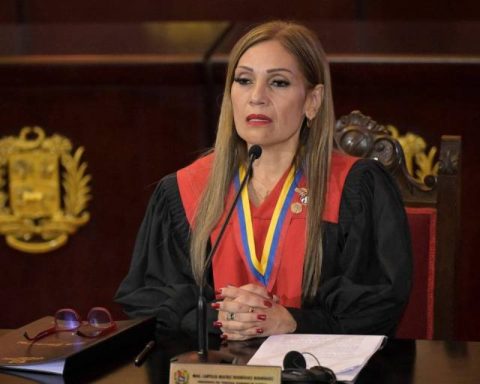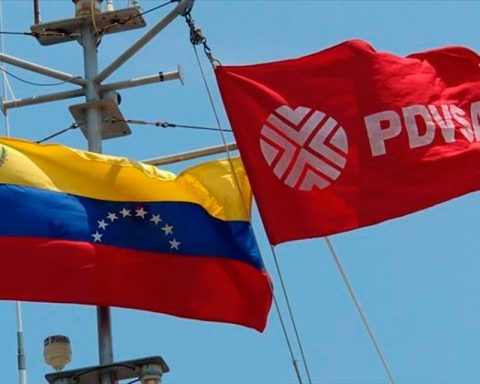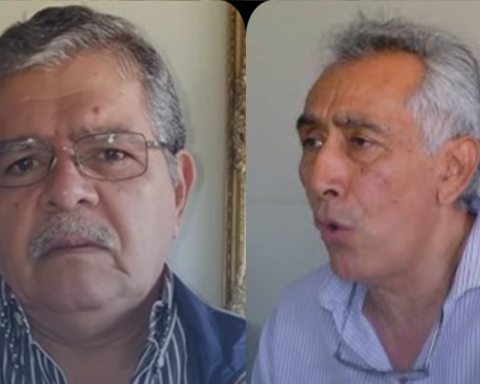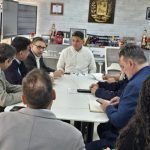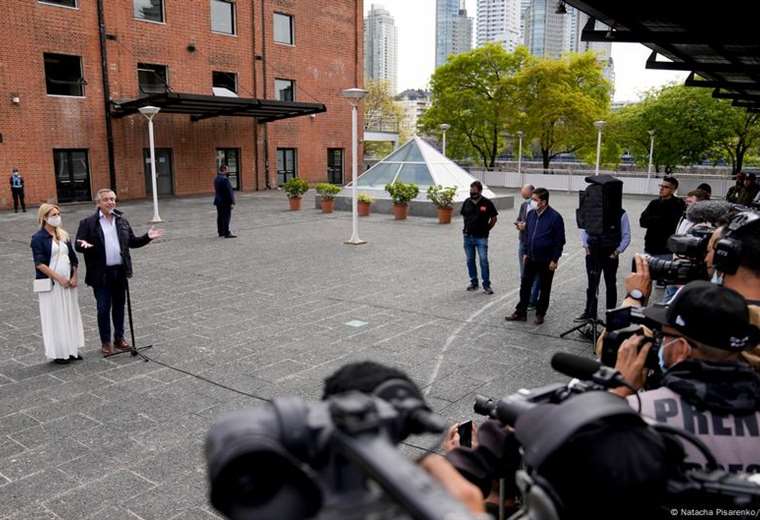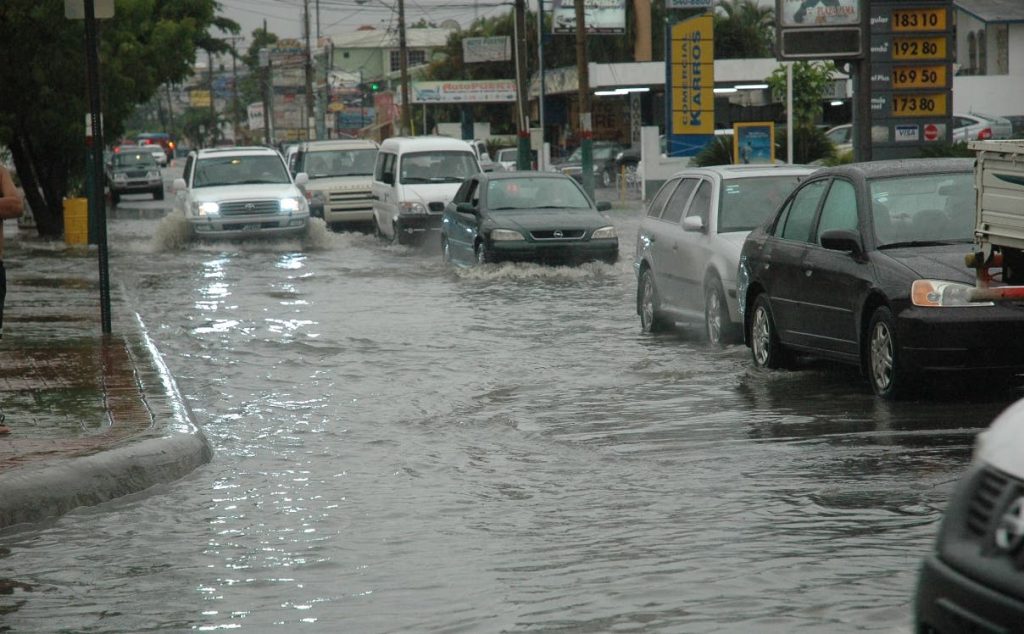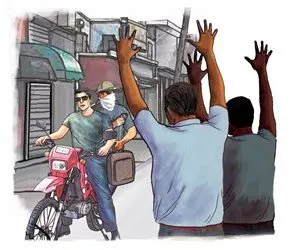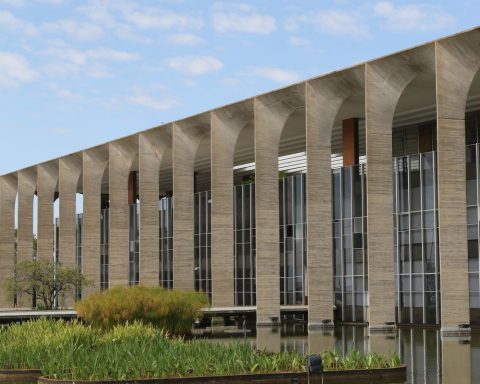Venezuela has been involved in recent weeks in multiple cyber attacks against various websites belonging to government institutions, the most talked about being the one that affected the transmission system of the National Electoral Council on July 28, in the middle of the presidential election process.
At 12:13 a.m. on July 29, CNE President Elvis Amoroso announced the results: Nicolás Maduro obtained 5,150,092 votes (51.20%) and Edmundo González, the main opposition candidate, obtained 4,445,978 votes (44.2%), but not before denouncing that “there was a computer attack that damaged the data transmission system, which caused delays in it.”
The delay in the transmission of data resulted in the conditions for the previously announced strategy of a sector of the opposition to claim fraud being given hours later. The failure to recognize the results announced by the CNE provoked a wave of violence that left a balance of dead, wounded, public and private facilities violated and more than 2,000 arrested.
The next step of the opposition sector led by the defeated candidate Edmundo González Urrutia in its plan to ignore the results was the publication on the Internet of supposed voting records that would demonstrate his victory in the elections.
This is not the first time that the opposition has claimed fraud, as similar allegations have occurred in almost all important elections in Venezuela.
But, on this occasion, the opposition launched not one, but three websites in which they claimed to have published 24,000 minutes issued by the voting tables, which was denied on Friday, August 2, by the president of the National Assembly, Jorge Rodríguez, who replied by accusing the opposition of trying to build a parallel CNE to delegitimize the presidential elections and advance the illegal investiture of former candidate Edmundo González as “president-elect,” which was denounced as a “Guaidó 2.0” strategy, that is, a new “self-proclamation.”
Rodriguez added that the total number of “records” available on the opposition website is 9,468, which represents 31% of the 30,026 records generated by each of the voting machines in the country. In addition, after an expert analysis of the content, it was determined that more than 80% of the documents stored there are false.
Cyber interference
Less than a week ago, both President Nicolás Maduro and Vice President Delcy Rodríguez denounced multiple cyber attacks against dozens of state institutions, not only the CNE, in a fierce attack by specialized foreign groups to achieve their objective.
Vice President Delcy Rodríguez reported that Venezuela has received 30 million cyberattacks per minute since July 28.
One of the main sources of cyber aggression against the country has been the hacker movement Amonymus, formed by an undetermined number of people who go by that name because they do not reveal their identity and who have been linked to financial speculator George Soros.
These so-called “cyberpirates” usually act in distributed denial of service attacks (DDoS), which consist of launching numerous requests to a server that hosts a web page, such that the hosting service cannot support the load of requests and the procedure is suspended.
In this regard, Carlos García Gómez, director of research and development at Diao Technology, indicated that the Venezuelan electoral system is inviolable and the only way to delay information is through a DDoS-type attack.
The Master in New Communication Technologies explained that “once the State decided to automate the elections 20 years ago, it did so with professionals from the Simón Bolívar University who have a very robust computing department and created a completely Venezuelan software, which does not allow any violation or alteration at the time of voting.”
García Gómez makes it clear that the DDOS attacks on the CNE, whose authors are yet to be defined, can be considered as “cyber warfare”, since it is an action carried out from abroad whose purpose is to harm the technological infrastructure of the Venezuelan State.
The attack was attributed to alleged representatives of “hacktivism” – such as Anonymous – who have “a clear ideological intention against our government,” said García.
Hacking systems is a useful tool for perpetrators to extort and manipulate, either to obtain money or to promote the overthrow of a legitimate government.
Actors behind the scenes
The government said the cyberattacks came from North Macedonia, a member country of the North Atlantic Treaty Organization since 2020 and a candidate to join the European Union since 2005.
Voluntad Popular activist Lester Toledo, stuck in his bunker in Miami, has been named by the Public Prosecutor’s Office as the main person involved in this attack on the CNE, which was aimed at slowing down the totaling process and the announcement of the results.
As a result, the prosecutor, Tarek William Saab, announced that an investigation has been opened into the fugitives from justice, Toledo and Leopoldo López, along with the political activist María Corina Machado to determine their degree of responsibility.
Prevention with social networks
Social media, along with text messaging, have become tools that – if intentionally manipulated by criminal minds – can cause terrible damage to the general population. Venezuelan authorities have specifically pointed to two social networks, X and Tik Tok, plus the WhatsApp application as the main channels for promoting messages of rejection of the election result and thus creating the conditions for violence to arise.
Engineer Carlos García Gómez warned about how one can “perceive the world” when one lives in a reality constructed through algorithms on social networks and which one has to face in daily life, without manipulation.

Digital offensive
- Whitepaper. Asert is a provider of network and application performance management products based in Westford, Massachusetts. The firm conducted a study on cyberattacks in Venezuela.
- The day after. The analyst shows that on July 29, traffic increased in volume: an additional 109 Gbps of incoming traffic, which represents a 16% increase compared to the previous day.
- Expected response. “We have witnessed DDoS attacks as a form of protest or political activism and we expected the same to happen in Venezuela,” Asert said.
- Unusual traffic. Asert also observed an unusual increase in incoming Internet traffic the day after the Venezuelan elections.
